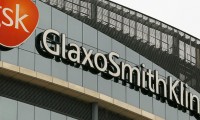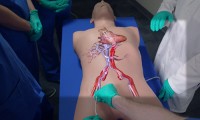-
chemoWave app offers patients support during chemotherapy
- Source: MobiHealthNews
- 795
- February 11, 2018
-
Paige.AI Created to Transform Cancer Diagnosis and Treatment by Applying Artificial Intelligence to Pathology
- Source: tmcnet
- 930
- February 9, 2018
-
Another Day, Another Breakthrough Tag for GlaxoSmithKline’s Bexsero
- Source: biospace
- 871
- February 9, 2018
-
Surgeons use Microsoft HoloLens to ‘see inside’ patients before they operate on them
- Source: Microsoft
- 1,006
- February 9, 2018
-
How mHealth is Changing the Face of Indian Healthcare Sector?
- Source: Entrepreneur India
- 705
- February 9, 2018
-
DeepMind Diagnoses Eye Disease With Artificial Intelligence
- Source: Frontline Genomics
- 801
- February 9, 2018
-
New study links migraines to increased risk of cardiovascular problems
- Source: msn
- 921
- February 8, 2018
-
NHS tells doctors to order stronger vaccine for next winter
- Source: pharmafile
- 848
- February 8, 2018
-
De Rothschild raises €345M Europe-skewed life science fund
- Source: FierceBiotech
- 794
- February 8, 2018
-
Has Health IT Adoption Improved Patient Outcomes?
- Source: HCANews
- 1,351
- February 8, 2018
your submission has already been received.
OK
Subscribe
Please enter a valid Email address!
Submit
The most relevant industry news & insight will be sent to you every two weeks.













